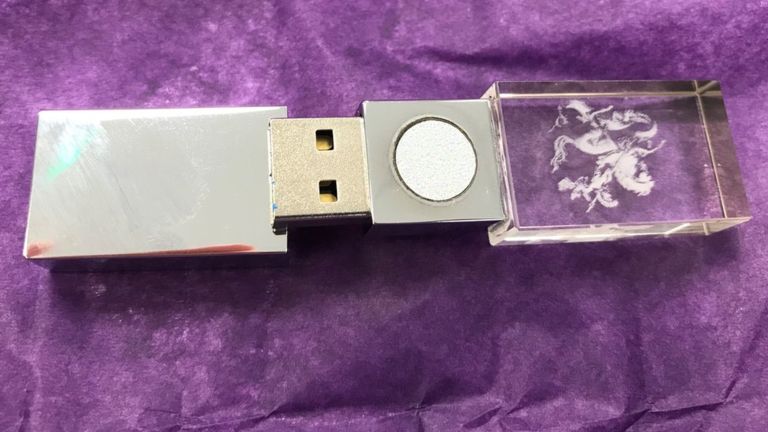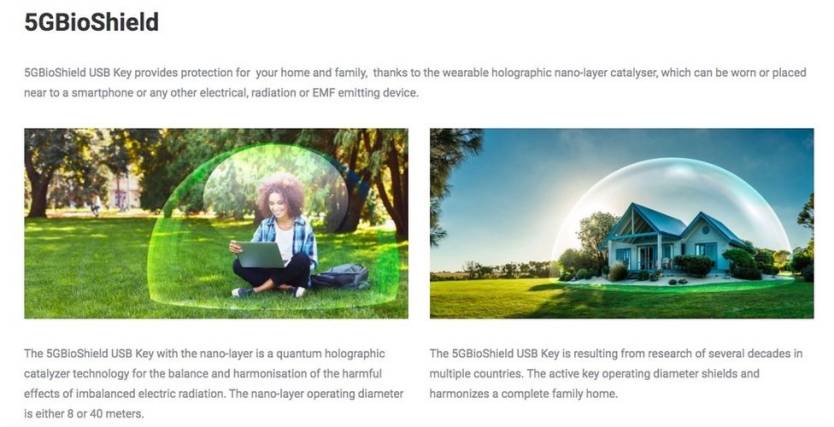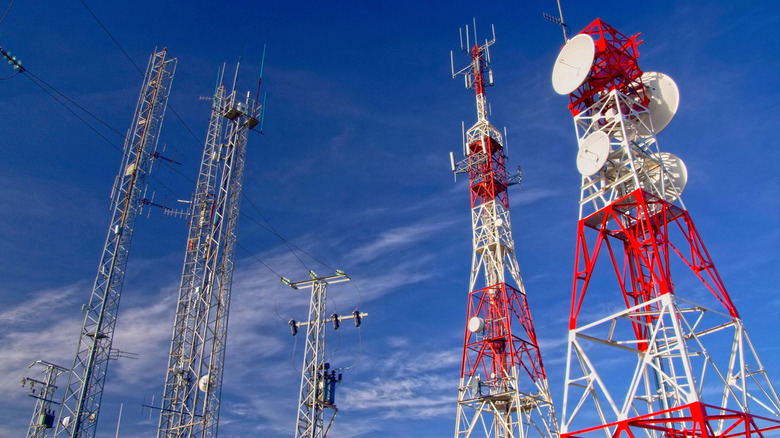This Fake $420 Anti-5G USB Stick Is Hysterically Stupid
- An "anti-5G" USB stick is being sold online for up to $420, promising to block adverse effects of the new telecom standard.
- 5G has been at the center of wild conspiracy theories for a couple of years, including a new strain of unfounded theories that associate 5G tech with the novel coronavirus pandemic.
- The USB device in question is a 128MB storage stick that costs $6 to make, but the people who fall for 5G conspiracy theories will probably fall for this too.
For years, we've been talking about the arrival of 5G technology, waiting for carriers and smartphone makers to create the tech that would bring us gigabit internet on phones. Little did we know at the time that the launch of 5G would spawn a highly contagious viral campaign that says 5G is dangerous, and you should oppose it.
5G conspiracy theories, many originating from Russia, were further fueled by the unexpected arrival of the coronavirus. Somehow, some people put the two together and created the ultimate conspiracy theory: 5G will increase the risk of coronavirus transmission. Anyone who thinks 5G is detrimental to one's health is frighteningly likely to consider investing in this $420 anti-5G USB stick, which is definitely a scam. Because if you're already knee-deep in the conspiracy theory, you might as well shell out to keep yourself safe.
It's called the 5GBioShield, and it retails for £339 ($420) in the UK, where a member of the Glastonbury Town Council's 5G Advisory Committee actually recommended it to other people, per BBC News. It's cheaper if you buy it in packs of three (£958 or $1,182), although the UK Trading Standards officers are looking to halt sales of the scammy device.

Actual 5GBioShield anti-5G stick disassembled by Pen Test Partners.
"We use this device and find it helpful," said Tony Hall, the councilman in question. "I also felt a 'calmer' feel to the home," he said, adding that he was able to sleep through the night and have more dreams. He says that the company might develop a 5G protection system for his entire town against electromagnetic radiation. British regulator Ofcom has already published an extensive report that explains the myths and realities of 5G deployment.
The company selling the stick describes it as a gadget that "provides protection for your home and family, thanks to the wearable holographic nano-layer catalyzer, which can be worn or placed near to a smartphone or any other electrical, radiation or EMF [electromagnetic field] emitting device." Incredible.
"Through a process of quantum oscillation, the 5GBioShield USB key balances and re-harmonizes the disturbing frequencies arising from the electric fog induced by devices, such as laptops, cordless phones, Wi-Fi, tablets, et cetera." If you buy any of that, then the 5GBioShield might be for you. Assuming, of course, that you can get it.
The USB key is a regular storage device with 128MB of memory and a sticker on top. Those retail for around £5 ($6) per key in China, Pen Test Partners' Ken Munro told BBC about the gadget, which he dismantled.
"Now, we're not 5G quantum experts but said sticker looks remarkably like one available in sheets from stationery suppliers for less than a penny each," he said, suggesting the 5GBioShield is nothing but a scam.

Screenshot from the 5GBioShield anti-5G stick product website.
BBC News spoke to one of the creators of the scam, who also operates a website that sells a dietary supplement which "leads to relativistic time dilation and biological quantum entanglement at the DNA level." Sounds about right. The woman said her company was the sole distributor of the 5GBioShield, but they didn't make it themselves.
"We are in possession of a great deal of technical information, with plenty of back-up historical research," she said. "As you can understand, we are not authorized to fully disclose all this sensitive information to third parties, for obvious reasons."
As for the audacity of scamming people out of so much money, she assures the BBC that they aren't cheap to make.
"In regard to the costs analysis your research has produced, I believe that the lack of in-depth information will not drive you to the exact computation of our expenses and production costs, including the cost of IP [intellectual property rights], and so on," she said. "It is therefore hard to take your evaluation seriously since you have evidently not researched the background facts in any meaningful way."
